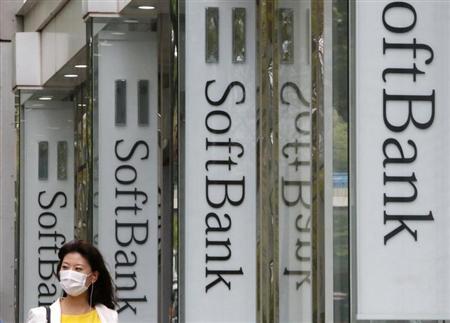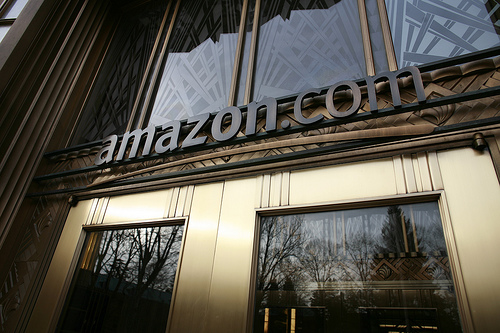 Sprint Nextel Corp and Japan’s SoftBank Corp have reached an agreement with U.S. authorities on the national security aspects of the Japanese firm’s pending $20.1 billion deal to win control of the U.S. wireless carrier, people familiar with the matter said.
Sprint Nextel Corp and Japan’s SoftBank Corp have reached an agreement with U.S. authorities on the national security aspects of the Japanese firm’s pending $20.1 billion deal to win control of the U.S. wireless carrier, people familiar with the matter said.
As a part of that agreement, the U.S. government will have a veto over new equipment purchases by Sprint in certain circumstances if the two companies merge, one source said.
The government will also establish a four-member oversight committee to make sure the companies abide by their national security promises. A Sprint board member will sit on that committee, said the source, who did not want to be named because the information was not public.
Formal announcement of the highly unusual agreement – drawn up amid fears of Chinese espionage – is likely to come early on Wednesday in the United States, four sources told Reuters.
Japanese mobile operator SoftBank agreed to buy a 70 percent stake in Sprint last October. That deal faces a challenge from Dish Network Corp, a U.S. satellite TV provider which last month launched a rival $25.5 billion bid for Sprint.
No one at Sprint was immediately available to comment, while SoftBank declined comment on Wednesday.
DISH WARNING
Dish has taken out full-page ads in Washington newspapers warning that a SoftBank-Sprint merger would threaten U.S. national security.
U.S. Senator Charles Schumer expressed strong concern last Friday about the proposed SoftBank-Sprint merger, warning it could expose the United States to Chinese cyber attacks.
Sources said SoftBank agreed with U.S. authorities to remove equipment made by China’s Huawei Technologies Co Ltd from Sprint and Clearwire Corp’s networks if the Japanese company completed its deal by the end of 2016. SoftBank President Masayoshi Son has said he will pull equipment made by China’s ZTE Corp if asked by U.S. regulators.
The House Intelligence Committee last year urged U.S. telecoms firms not to do business with Huawei and ZTE because it said potential Chinese state influence on the companies posed a threat to U.S. security. SoftBank uses equipment made by ZTE and Huawei in Japan.
Last week, Clearwire’s board recommended Sprint’s sweetened buyout offer for the company after Sprint raised its bid to $3.40 per share, from $2.97 per share, for the 50 percent it doesn’t already own. Clearwire shareholders will vote on the deal on Friday.
Dish reiterated its warnings on Tuesday that a SoftBank-Sprint tie-up posed national security risks.
“We believe the U.S. government should proceed with deliberation and caution in turning over assets of national strategic importance – such as the Sprint fiber backbone and wireless networks – to a foreign-controlled entity with significant ties to China,” spokesman Bob Toevs said. “Oversight and accountability for our national network infrastructure is critical at a time when offshore attacks on that infrastructure continue to rise.”
“POLITICS, PROTECTIONISM”
In an email, Huawei’s U.S.-based spokesman William Plummer said: “No matter who wins the bid for Sprint, the future Sprint network will be sourced, in part, from China, just as are the networks of AT&T and Verizon and every other carrier. Every telecom infrastructure vendor, regardless of geography of headquarters, conducts R&D, codes software and manufactures gear … in China.
“Suggestions that networks and data will somehow be made safer by blackballing vendors based on geography of headquarters are either uninformed or dissembling,” Plummer added.
“Anyone who truly wants more secure American networks and data should focus instead on establishing apolitical geography-agnostic global and industry-wide supply chains and operational standards to raise the cyber-security bar for everyone. Anything else is just politics and protectionism,” he said.
Industry experts say the U.S. Federal Communications Commission is unlikely to rule before Sprint makes a final choice of buyer and the inter-agency Committee on Foreign Investment in the United States (CFIUS) completes its own review. Sprint shareholders are due to vote on the SoftBank offer on June 12.
CFIUS reviews are highly secretive and weigh whether foreign ownership of a U.S. company poses threats to or increases vulnerability of the nation’s infrastructure and assets. Although technically voluntary, foreign bidders prefer asking the CFIUS to review their deals before completing them.
“This is SoftBank clearly doing whatever it takes to satisfy the U.S. government they are not posing any national security risks. It’s a pretty smart move on their part to diffuse that aspect of the problem,” said Neil Juggins, a regional telecoms analyst for Hong Kong-based JI Asia, an affiliate of Societe Generale.
SoftBank shares last traded 2.1 percent higher in Tokyo, outperforming the broader index’s 0.5 percent gain.
Source : Reuters




































